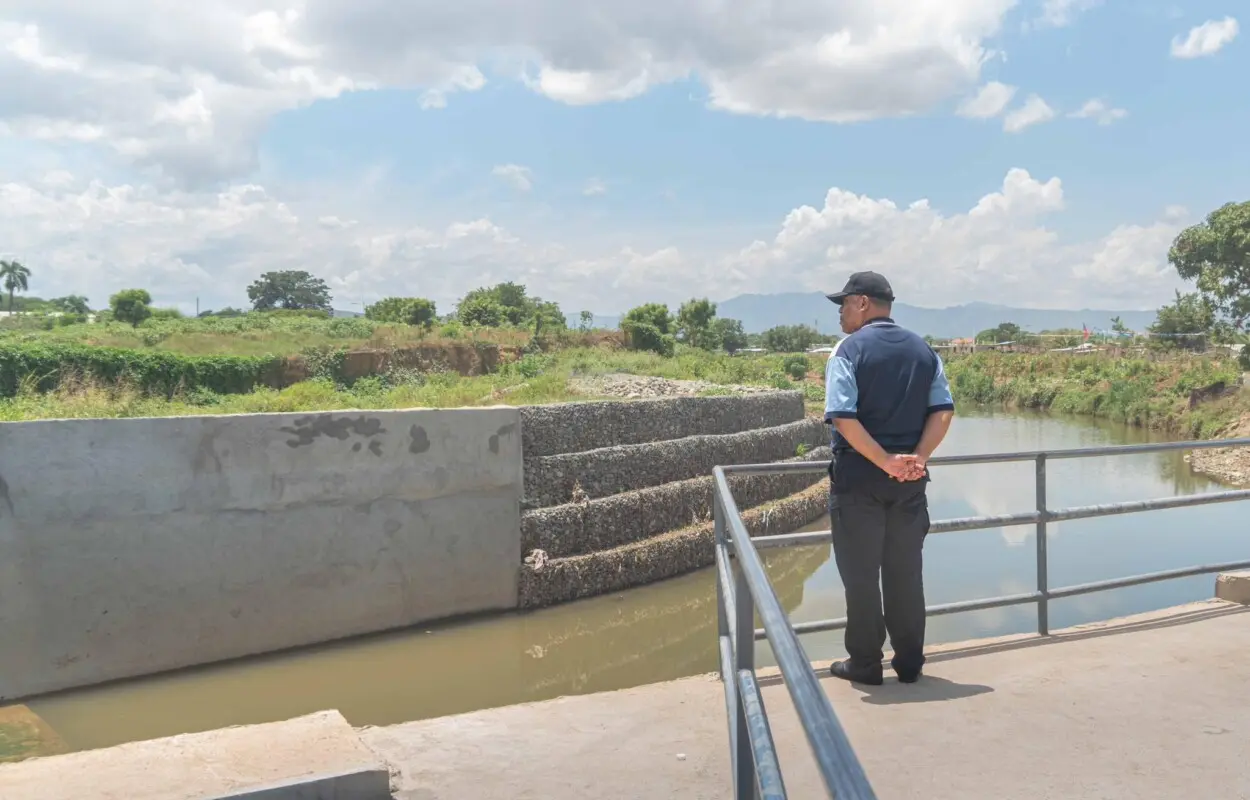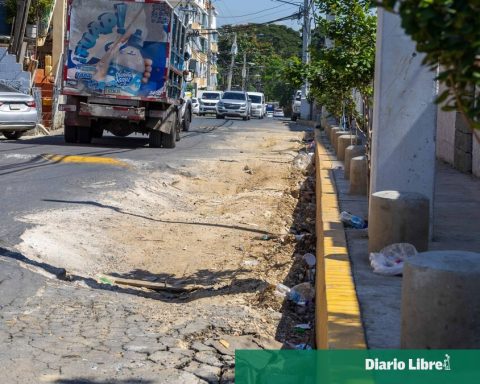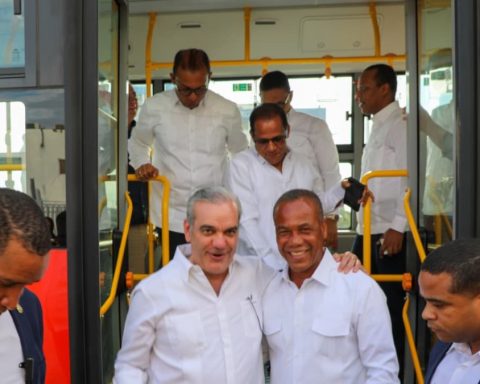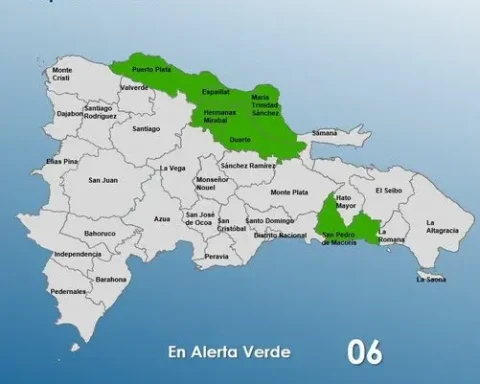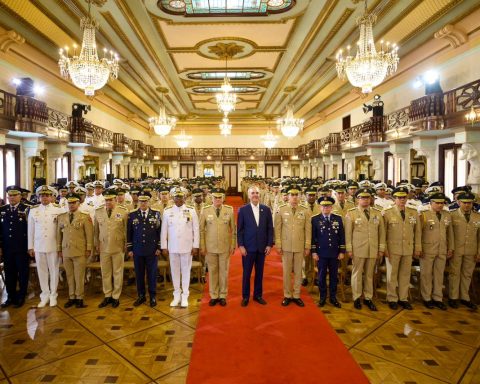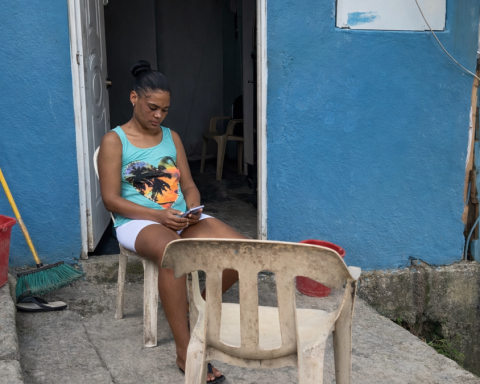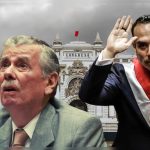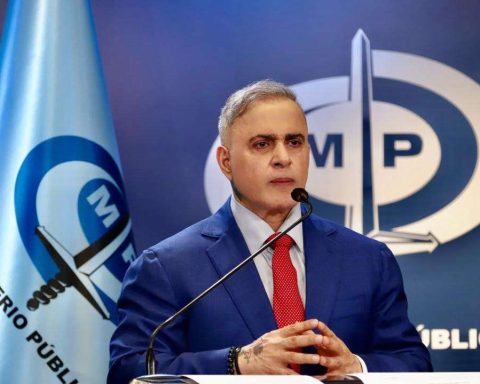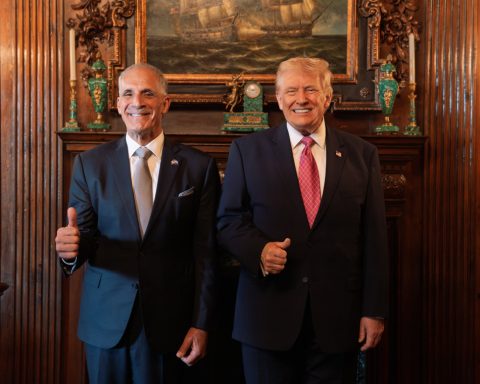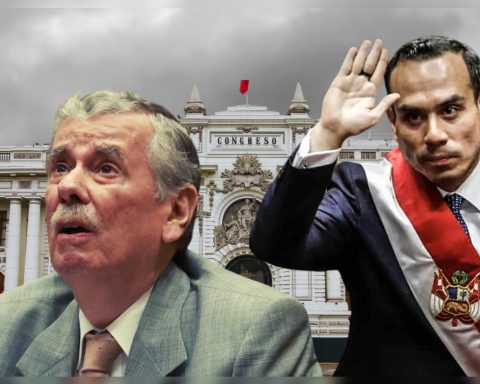Port-au-Prince.- Haitian Prime Minister, Garry Conillevisited yesterday Friday the Ouanaminthe canal on the Masacre or Dajabón river in the north of the country, bordering the Dominican Republic, which opposes the infrastructure considering it “illegal” and which caused serious disagreements between both nations.
“I have come here today to see, to listen and to understand,” said Conille, in the presence of several hundred people, including local residents.
The Chief of Staff arrived in northern Haiti, specifically in the city of Cap-Haïtien (the second largest in the country), accompanied by a large delegation made up of members of the Government and the diplomatic corps accredited in the country.
According to the Government, the objective of this mission is to hold discussions with local authorities to assess the infrastructure and economic and tourist potential of the northern and northeastern departments, with a view to better articulating and directing the Government’s actions in the north.
“We are here to make an official visit to the region and work together to find solutions to the country’s socio-economic and security challenges,” he told reporters.
Conille added that “the north is one of the government’s priorities for integrated and global development.”
During this mission, Conille has already visited several institutions and infrastructures in that area, including the Justinien hospital and the José Martí power plant.
You may be interested in reading: DR measures continue without stopping the construction of the Haitian canal in the Masacre River
He also met with officials from the National Airport Authority (AAN) and the National Civil Aviation Office (Ofnac) to discuss developments in the northern region in terms of migration.
During this mission, Conille and members of his government presented the administration’s roadmap on Thursday.
The presentation was made in the presence of members of the diplomatic corps, including representatives and ambassadors from the United States, Canada, France, Spain, Mexico, Chile, Switzerland, the United Nations and the European Union.
During the presentation, Conille focused on the strategy for implementing the major projects of the political transition. According to him, the Government, with the support of its international partners, will do everything possible to implement the transition programme.
Resolving the humanitarian and security crisis, strengthening the judicial system and restoring security, recovering the economy and organizing constitutional reform and general elections in the country are the main tasks of the transition.
Last September, Dominican President Luis Abinader ordered the closure of air, sea and land trade with Haiti in protest against the construction of the canal, which he described as “foolish.”
The president said at that time that the construction of the canal was in the hands of private sectors and that the work was being carried out without any type of engineering and that it constituted a provocation that the Dominican authorities were not going to accept.
The Dominican Republic mobilized troops to the border, but the construction of the canal continued. EFE
